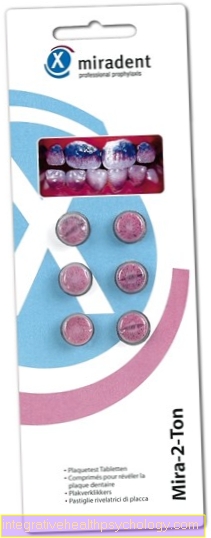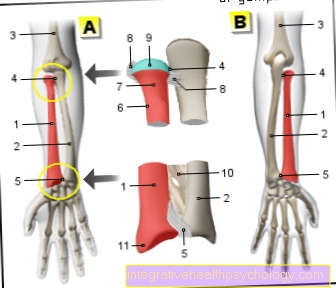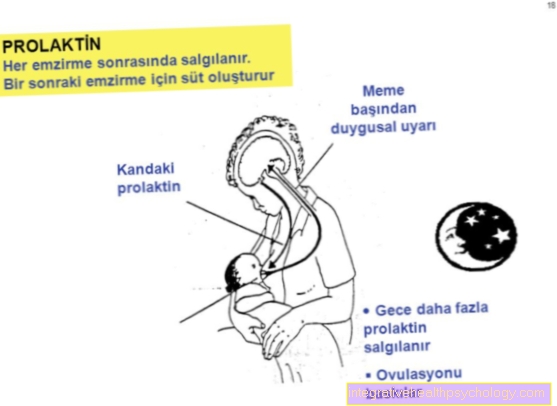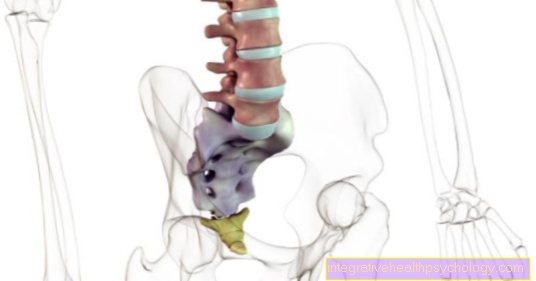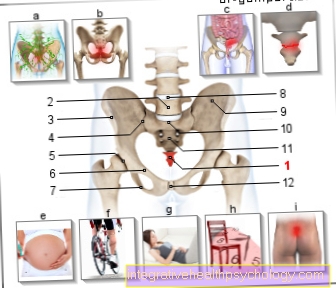Glitazone
Synonyms in a broader sense
Diabetes medication, medication Diabetes mellitus, pioglitazone (e.g. Actos®) rosiglitazone (e.g. Avandia®)
How do Glitazone Pioglitazone (e.g. Actos®) Rosiglitazone (e.g. Avandia®) work?
The drugs from the glitazone group of substances with the two commercially available products pioglitazone (Actos®) and rosiglitazone (Avandia®) are also called “insulin sensitizers”. “Insulin sensitizers” because they increase the sensitivity of the body's cells to the insulin still present in the body. The cells can therefore still absorb sugar from the blood despite low insulin levels. Pioglitazone also inhibits the liver's production of sugar.
The drugs pioglitazone (Actos®) and rosiglitazone (Avandia®) can be combined with metformin or sulfonylureas, which further increases the sugar-lowering effect. Due to the improved insulin effect on the cell, another effect of the insulin, namely fat production, is favored.
The main side effect of the drugs pioglitazone (Actos®) and rosiglitazone (Avandia®) is weight gain. An increase of two to three kilos is quite possible here. Type 2 diabetics in particular are often overweight. Weight loss under therapy with glitazones is usually difficult for patients.
The use of pioglitazone (Actos®) or rosiglitazone (Avandia®) should, however, take place at an early stage so that the remaining amounts of insulin in the body can still be used.
Note: glitazone
In later stages of diabetes, insulin production can dry up completely. In this case, glitazones no longer have any effect!
Despite the relatively young age of the drugs pioglitazone (Actos®) and rosiglitazone (Avandia®), the latest medical studies are already indicating that they are very promising. Compared to the other oral antidiabetic drugs, glitazones work on the real problem of type 2 diabetes: the Insulin resistance the body cells is reversed by the glitazone. In addition, glitazones influence the increased blood pressure (high blood pressure) and blood lipid levels in a positive sense, which in the long term reduces the risk of Hardening of the arteries is reduced.
dosage
It is taken once a day: 30 mg pioglitazone (Actos®) in the morning or rosiglitazone (Avandia®) 4 mg in the morning. Rosiglitazone can be increased up to 8 mg per day.
The drugs pioglitazone (Actos®) and rosiglitazone (Avandia®) only take effect after four months.
Side effects
Glitazone can, after prolonged use, in patients at risk of heart failure (Heart failure) or worsen it in patients with pre-existing cardiac insufficiency. Unfortunately, cardiac insufficiency is particularly common in patients with type 2 diabetes. Doctors are therefore cautious and will not prescribe glitazones if you have heart failure. Heart failure is caused by water retention e.g. noticeable on the legs or by shortness of breath. Your doctor will ask you about this at regular check-ups.
Weight gain and an increase in cholesterol have been observed in studies in many patients. Glitazones can worsen liver values and cause abnormal sensations in the arms and legs. As with almost all other oral anti-diabetic drugs, glitazones can cause gastrointestinal problems. In addition, signs of anemia have been observed during therapy with pioglitazone (Actos®) and rosiglitazone (Avandia®).
Contraindications
If you are extremely overweight, glitazones increase weight gain and should therefore be replaced with other drugs.
If you have heart failure or liver disease, you must not take glitazone.
If you are already injecting insulin, none of the glitazone supplements is an option for you.
In the case of severe kidney disease or if regular dialysis treatment is necessary, the risk-benefit ratio under therapy with pioglitazone (Actos®) or rosiglitazone (Avandia®) should be carefully considered.
Interactions
If you are taking anti-inflammatory or pain medication for a rheumatic disease, joint inflammation or osteoarthritis (NSAIDs, diclofenac, Indomethacin, piroxicam, Ibuprofen), water retention in body tissue and cardiac insufficiency are promoted. Some chemotherapeutic agents inhibit the breakdown of rosiglitaton and increase its effect in terms of hypoglycaemia. If you take medication for high blood lipid levels, the effects of rosiglitazone may be increased. Your doctor will take this into account and adjust the dose if necessary.

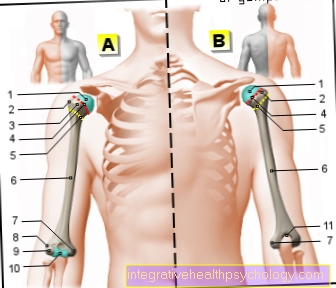



.jpg)




